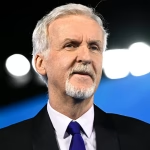Anthony Joshua: The Business of Reinvention and the Future of a Heavyweight Empire
For more than a decade, Anthony Joshua has been something rare in modern sport: a boxer whose brand extends far beyond the ring. He has been a global figure, a commercial powerhouse, and a case study in how elite athletes can convert performance into long-term equity. And now, as he enters one of the most financially unusual phases of his career, Joshua’s future looks less like a traditional sporting arc and more like the evolution of a diversified enterprise.
This isn’t simply a story about a boxer preparing for another blockbuster fight. It’s about a man re-engineering his identity in real time and the business model that may define his next decade.
From Watford to the World Stage
Anthony Joshua’s ascent remains one of British sport’s most meticulously built success stories. After winning Olympic gold in 2012, he became the kind of heavyweight champion that big brands dream about: articulate, disciplined, visually marketable, and able to appeal to demographics far beyond boxing’s traditional audience.
He secured major partnerships with global corporates Under Armour, Jaguar Land Rover, Beats by Dre, and Hugo Boss — and each deal reinforced the idea that Joshua wasn’t simply an athlete; he was a global asset. Boxers rarely operate within polished brand frameworks, but Joshua was an exception. His team positioned him not as a bruiser, but as a leader, a professional, and a commercial partner.
For years, his earning potential rivalled footballers and NBA stars, with purse revenues and endorsements pushing him into the upper tier of athlete wealth.
The Business Mind Behind the Boxer
What sets Joshua apart isn’t only his commercial appeal it’s the intentionality behind it. He built his own management company, 258 Management, allowing him to retain equity in his brand and maintain control over partnerships rather than handing that power to external agencies.
He has invested in real estate, hospitality, and early-stage companies, positioning himself for life beyond the ring. The logic is straightforward: boxing careers end abruptly, but well-chosen assets compound.
His decision-making has always carried a layer of fiscal discipline. After building generational wealth, he has been increasingly vocal about ensuring that what he’s created doesn’t evaporate in retirement a trap that many boxers, even champions, fail to avoid.
A Strategic Pivot: Fighting for Relevance, Leverage, and Legacy
No athlete remains undefeated by time. Joshua’s losses in recent years forced a strategic shift — not only athletically but financially. The heavyweight division is as much a business ecosystem as it is a sport; value is dictated by momentum, narrative, and cultural presence.
Joshua’s response wasn’t to retreat. Instead, he diversified the routes through which he maintains relevance: new deals, renewed training teams, expanded international fanbases, and a willingness to be part of unconventional matchups.
Which brings us to the most surprising chapter of his career so far.
The Jake Paul Fight: A Commercial Calculus, Not a Circus
Joshua’s upcoming fight with Jake Paul set within Netflix’s sports content expansion is easy to dismiss as spectacle. But financially and strategically, it’s one of the smartest moves a late-career athlete can make.
For Joshua, this is not a legacy bout. It’s an equity play.
Streaming platforms are rewriting the economics of boxing, replacing traditional pay-per-view with global subscription-driven revenue. Joshua, already a household name, becomes part of Netflix’s strategy to turn fights into cultural television events.
The fight offers:
-
A massive guaranteed purse, far exceeding what most boxers can access this late in their career.
-
A global stage, not limited to boxing fans but reaching millions of casual viewers.
-
A new form of leverage, as Joshua becomes one of the central figures in an emerging broadcast model.
Jake Paul may be a novice compared to seasoned heavyweights, but he brings unmatched digital influence. And influence equals money.
For Joshua, this fight is not a risk it’s a reinvestment in relevance.

Jake Paul
Strengthening the Empire: What Joshua Builds After Boxing
Boxers often fall into a void the moment they retire. Joshua is not built for that fate.
His next phase could plausibly include:
• Expanding 258 Management into a multi-sport talent agency
• Entering sports broadcasting — his charisma and clarity make him ideal for major networks
• Growing his investment portfolio in fitness tech, health, and sports innovation
• Deepening involvement in football ownership, a long-standing interest
• Producing sports documentaries or content deals, especially with Netflix or Amazon
Joshua has the rare combination of capital, influence, and discipline to build a diversified empire. The fight with Paul is simply one tile in a bigger mosaic.
Conclusion: Anthony Joshua as a Modern Enterprise
Anthony Joshua is no longer just a boxer preparing for his next headline bout. He is a case study in strategic reinvention — a reminder that modern athletes must think in terms of brand architecture, media ecosystems, and long-term asset growth.
The upcoming Jake Paul fight will dominate headlines, but the real story sits beneath it: a heavyweight mapping out a post-ring future with the precision of a CEO.
The punches matter, of course. But the business plan matters more.
Frequently Asked Questions
Is Anthony Joshua still a major commercial draw?
Yes. Despite recent losses, Joshua remains one of boxing’s most marketable figures due to his global fanbase, corporate partnerships, and long-standing mainstream appeal.
Why is the Jake Paul fight financially significant?
Because Netflix’s global reach introduces boxing to millions of non-traditional viewers, creating a new revenue model that benefits fighters who can attract audiences beyond the sport.














